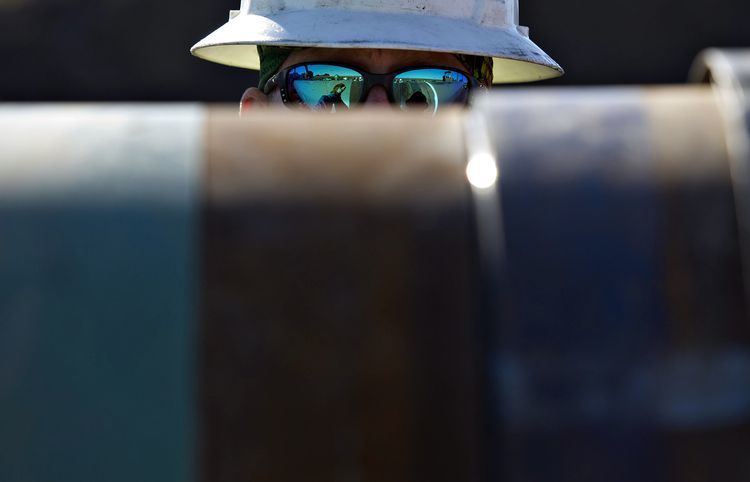
What does energy dominance look like? A little like a 46-mile pipeline trickling modest volumes of gasoline and diesel into Mexico.
President Donald Trump on Thursday announced his plans for promoting U.S. energy, which included the approval of NuStar Energy LP’s New Burgos Pipeline, a cross-border project capable of hauling 108,000 barrels day of gasoline, diesel and other petroleum products to Mexico from the southern tip of Texas. That’s about 2 percent of the nation’s current petroleum products exports.
“My administration has just approved the construction of a new petroleum pipeline to Mexico, which will further boost American energy exports, and that will go right under the wall, right?” Trump said during an “Energy Week” event in Washington. “Have it go down a little deeper in that one section.”
The pipeline could essentially displace the fuels that are currently hauled across the border in tanker trucks. It’s planned to transport petroleum to Pemex’s Burgos gas processing plant in Reynosa, Tamaulipas, in Mexico from Edinburg, Texas. The trucks it will displace would’ve had a much harder time moving past the wall anyway.
“Every piece of infrastructure helps,” said Robert Campbell, head of oil-products research for Energy Aspects Ltd in New York. “This only goes just across the river into Mexico.”
NuStar still needs to get commitments from potential shippers on the line before it moves forward.
“NuStar is currently in negotiations with different customers to move the refined products in to Mexico,” spokesman Greg Matula said by email. “But receiving these presidential permits is a very important step in moving the agreements with the customers to completion.”
The U.S. exported just over 5 million barrels a day of finished petroleum products in March, government data show. NuStar’s line capacity would make up 2 percent of that total, if it gets fully booked by customers. But the specific project pinned to American dominance wouldn’t have been possible without Mexico’s historic 2014 energy reform that opened the market to private companies. Another San Antonio-based company, Howard Energy Partners, is also working to pipe refined products into northern Mexico if it can get the approvals.
“I’m not convinced this is going to be some giant change,” Campbell said by phone. “This won’t be the last — I’d be very surprised if this was the last such project.”
Recommended for you
